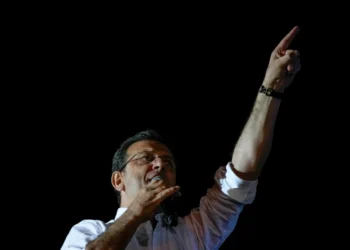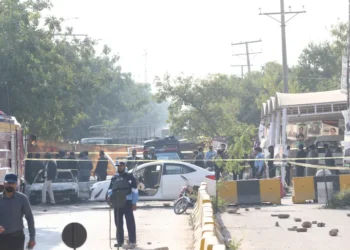The ceasefire in Gaza is hanging by a thread, and for many Palestinians, the fear that full-scale war could reignite at any moment is all too familiar.
This isn’t the first time hope has given way to renewed violence. Just months ago, a fragile truce collapsed when Israel resumed airstrikes and refused to move forward with a second phase of negotiations that might have led to a permanent end to the conflict.
Now, with tensions simmering once again, the people of Gaza are bracing for what may come next.
Apart from the fact that the majority of people are unable to return to their homes in the eastern part and toward the northern side of the Gaza governorate, Israeli attacks highlight how fragile this ceasefire is.
According to Gaza Government Media Office, Israeli attacks have killed at least 97 Palestinians since the ceasefire came into effect on October 10, 2025.
The office said in a statement that it documented 80 breaches of the truce, which it said constitute a blatant violation of international humanitarian law.
“These violations ranged from direct fire against civilians to deliberate shelling and targeting, the use of simultaneous air strikes, and the arrest of a number of civilians,” the statement read.
“These practices reflect the occupation’s continued aggressive approach, its clear desire for escalation on the ground, and its constant thirst for blood and killing.”
Gaza Government Media Office
The ceasefire in Gaza was put to the test as Israel launched a wave of air strikes and briefly halted aid to the territory in response to what it said was a Hamas attack that killed two Israeli soldiers in Rafah and for days, it has been partially blocking the aid to pressure Hamas to locate and transfer the bodies of slain captives.
Hamas reasserted its commitment to the ceasefire and denied its involvement in the Rafah incident, noting that it occurred in an area under the control of the Israeli military.
On Sunday night, the Israeli military said that it was going back to enforcing the ceasefire agreement after a directive from the country’s political echelon. The military also said that it would be responding firmly to any violations of the ceasefire that they felt were taking place now.
Even before Sunday’s violence, tensions had been running high in recent days with a dispute between Hamas and Israel over the return of the remains of 28 deceased hostages held by the militant Islamist group. Israel has said that Hamas is delaying the return of some hostages’ remains in violation of the ceasefire deal.
The ceasefire deal stipulated that all Israeli hostages, living and dead, would be returned and nearly 2,000 Palestinian detainees and prisoners freed.
Last Monday, Hamas returned the last 20 surviving hostages but as of Saturday evening had returned the remains of only 12 of the 28 deceased captives, saying it would need specialist recovery equipment to retrieve the rest from the ruins of Gaza.
Hamas says that the war’s devastation and Israeli military control of areas of Gaza have slowed the handover. However, Israel believes that Hamas has access to more bodies than it has returned.
Gaza’s ruins are being scoured for the dead. Newly recovered bodies brought the Palestinian death toll above 68,000, according to the health ministry. Thousands of people are still missing, according to the Red Cross.
Trump Confirms Gaza Ceasefire Still In Effect
Meanwhile, US President, Donald Trump confirmed that the ceasefire is still in effect.
Asked by a reporter on board Air Force One whether the Gaza ceasefire is still in effect, Trump responded, “Yes, it is.”
“We want to make sure that it’s going to be very peaceful with Hamas and as you know, they’ve been quite rambunctious… but either way … it’s going to be handled toughly, but properly.”
Donald Trump
Senior US officials, possibly including the Vice President, JD Vance, were expected to arrive in Israel in the coming days for what observers said was a clear effort to hold Benjamin Netanyahu, Israel’s Prime Minister, to the deal signed in Sharm-el-Sheikh earlier this month.
Israel and Hamas have agreed to the first phase of a ceasefire to facilitate the return of Israeli hostages, but deep disagreements remain over how to implement the second phase of the US-drafted plan to move to a permanent truce.
READ ALSO: Inflation Tamed, Reserves Rebuilt: Ghana’s Economic Revival Gains Global Recognition























